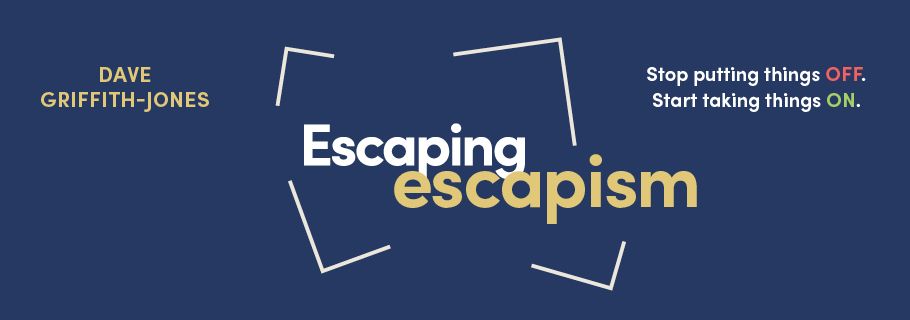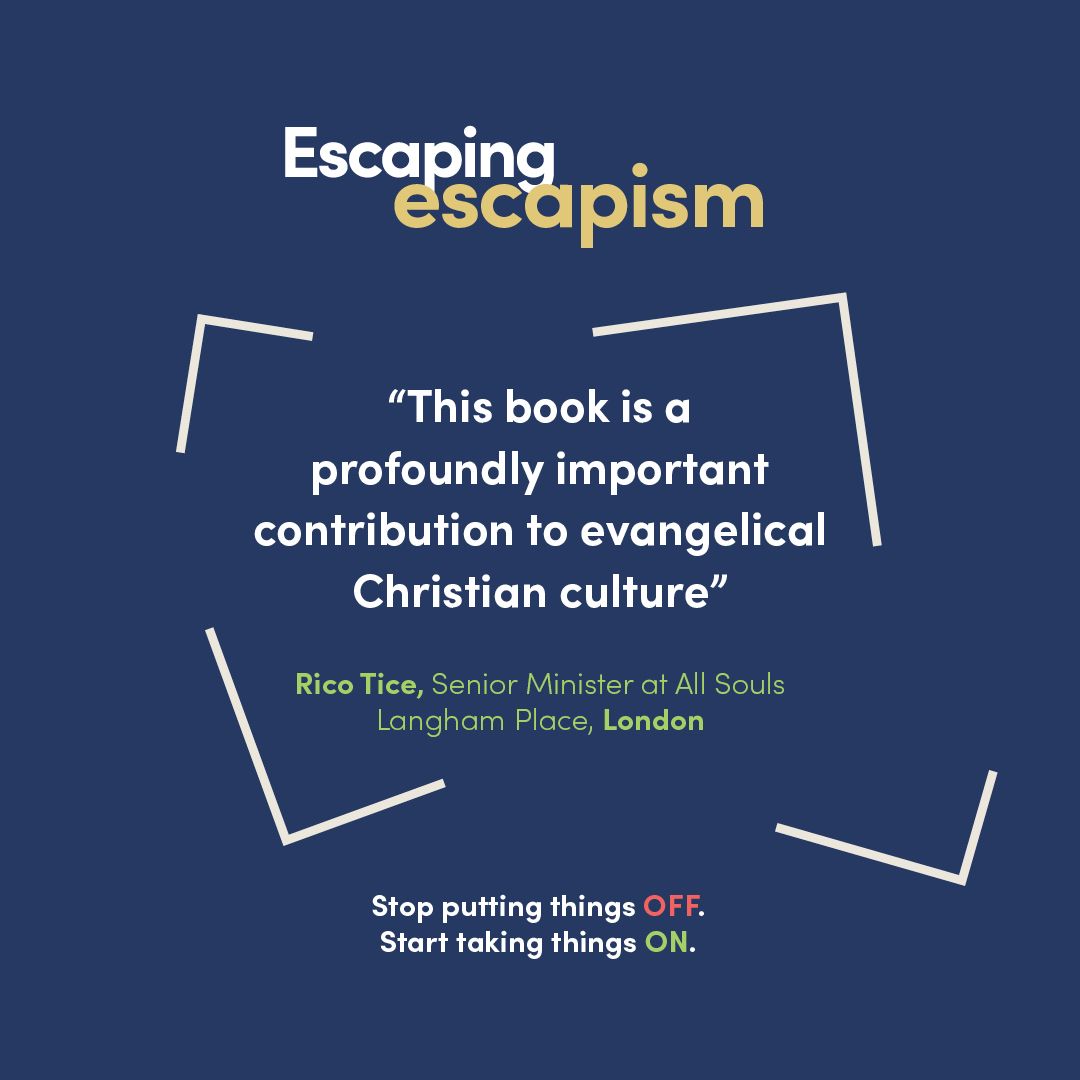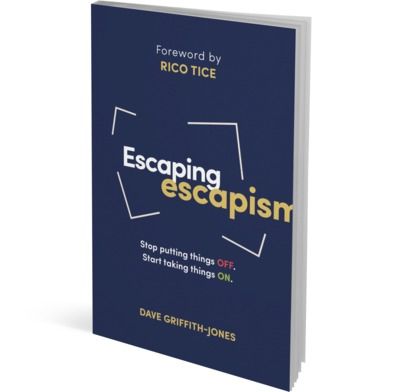“The best things we do are usually the hardest”: An Interview with Dave Griffith-Jones

How are you feeling about the year ahead?
As well as thinking about the opportunities and possibilities, most of us will probably be aware of situations we’re not looking forward to: relationships we keep at a distance, decisions we’d rather not make, areas of our lives we’d rather avoid. Dave Griffith-Jones is a church leader in East Hull and the author of the recently-published, Escaping Escapism, which is a refreshing call to face up to things we’re avoiding with our trust in God. He kindly let me ask him a few questions about how we might all escape ‘escapism’ this year – and I found his answers really stirring.
Dave, in Escaping Escapism you very much share your own journey as an ‘escapist’. Give us a snapshot of what led you to write this book?
It’s my specialist subject! A few years ago God began to show me that avoiding hard things was one of my besetting sins. As a sports fan, I’m addicted to live text commentaries (the longer the cricket match the better). As a dad, I scroll on my phone when I should be engaging with the kids. As a pastor, I dodge awkward-but-necessary conversations. As a leader, I put off decisions and don’t take risks. As a grown man I avoided the dentist for 19 years… I’ve been doing what is easiest for me, not what is best for others, when Jesus calls me to be strong and courageous.

That’s quite refreshing to hear. If I’m honest, my tendency would have been to think of escapists as being those who spend every waking-hour playing Candy Crush or burying ourselves in some fictional world through books or Netflix. And whilst that may be the case for some of us, I sense you’re saying it’s a wider problem?I define escapism as avoiding difficult people, putting off difficult challenges and giving up in difficult times. It’s not doing any good thing Jesus calls us to do, whether that’s challenging injustice, committing to a relationship, speaking out your feelings, praying out loud, saying sorry, taking on new responsibility or planting a church… It’s driven by fear. Fear is the root of all escapism. Fear divides our hearts so that we trust God a bit, but not fully. So we need to pray that God would give us an undivided heart that fears him alone (Psalm 86:10, kind of the theme verse for the book).
Ok, so when you put it like that it’s really compelling – and yet part of me responds by deciding it’s just too uncomfortable to think about! What would your response be to someone who feels that sense of unease at doing what’s difficult?
The best things we do are usually the hardest. Climbing mountains, learning a language or an instrument, starting a business, telling people about Jesus, staying married, being a parent – the most daunting challenges are the most rewarding. Mark Twain was right: in future years we will be more disappointed by the things we did not do than by the things we do. If we avoid hard things, then we miss out on the joy of standing on top of a mountain that looked so formidable from below.
Christians throughout history have traditionally talked about sin in two categories: sins of commission (wrong things we do) and sins of omission (good things we fail to do). In the book you pick up on this latter category and link it to our escapist tendencies, making the suggestion that this is something of a blind-spot in twenty-first century Christianity. Tell us more….
It’s been a blind spot for me. When I did fight my sin, it’s mostly been my sins of commission: getting drunk, insulting people, lying, arguments, etc. The only sins of omission I noticed and confessed were pietistic: not praying, not reading my Bible. But Jesus says the most important commands are to love God with all our heart and to love our neighbour as ourselves – so the most serious sins are sins of omission: failure to love God and love others. If we don’t fight sins of omission then spouses don’t get loved, friendships don’t get made, justice doesn’t get done, children don’t get parented, churches don’t get planted and Jesus doesn’t get honoured.

Lastly, as well as wrestling with your own escapism, as a pastor you’ll have obviously had to help other people engage with their own escapism too. Any wisdom for those in pastoral ministry on helping people deal with this?Three tips: first, encourage people who struggle with escapism to set godly goals – to identify a mountain God wants them to climb (e.g. applying for a new job, helping a neighbour, speaking honestly, inviting a friend to church…). Second, help them identify the fears that hold them back from doing this – is it a fear of missing out, or of what people think, or of not being able to cope, or of failure, or of something else? Third, show them Jesus in a way that frees them from those fears. As Glen Scrivener puts it: “Fear is when life overwhelms you; faith is when Christ overwhelms you”. Jesus is not just a past and future rescuer – he is my refuge, my light, my shepherd here and now. So help people to see and savour Him here and now!
Dave, thank you so much for your time – that’s really inspiring stuff – here’s to embracing hard things with Jesus freeing us from our fears this year…
—If you want to quit avoiding and escaping situations, and instead embrace hard things this year, you can pick up a copy of Escaping Escapism from the publisher here.